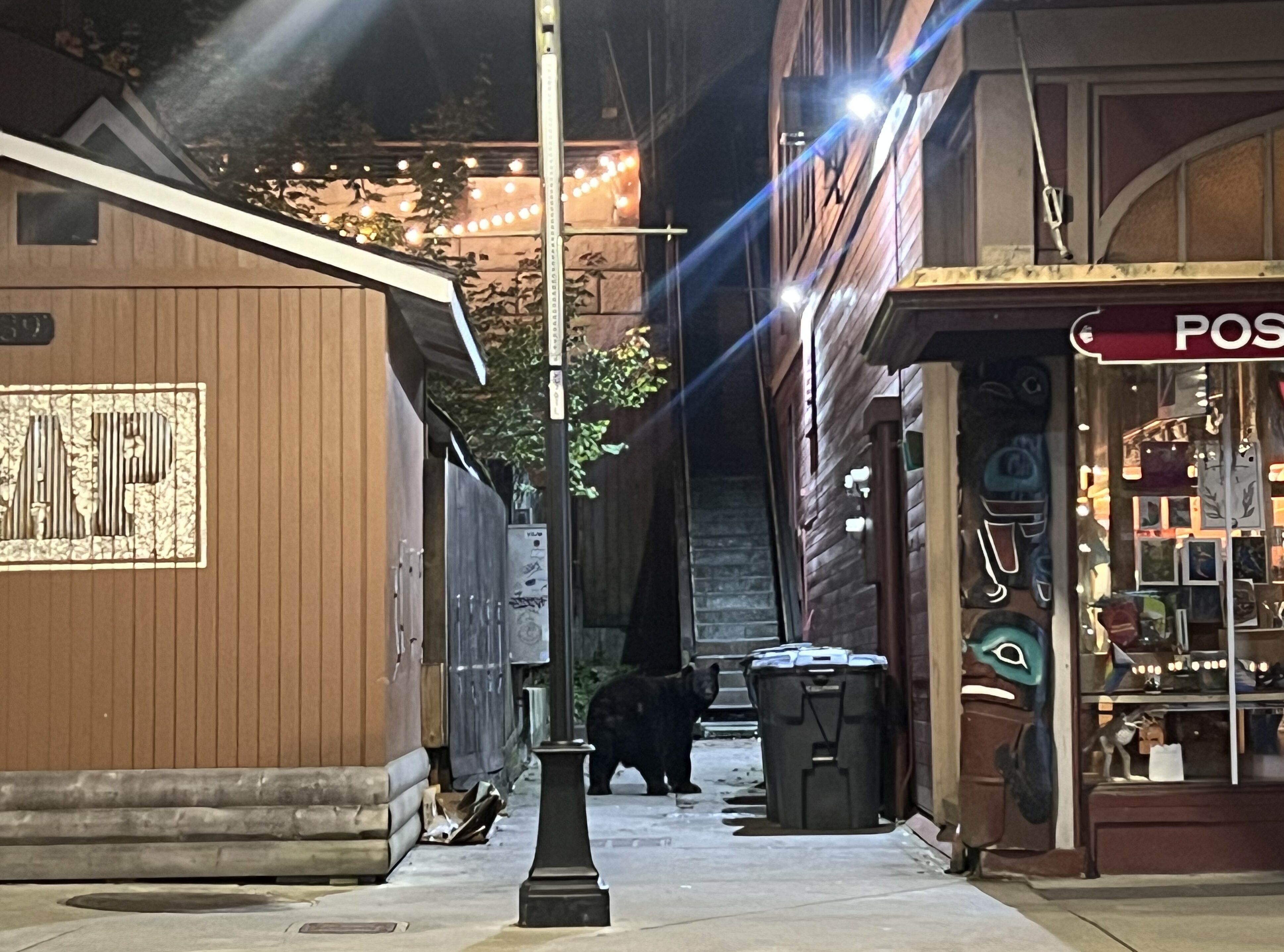Juneau’s fat bears are on the prowl for trash as winter approaches
Description
<figure class="wp-caption aligncenter" id="attachment_344975" style="width: 830px;"> <figcaption class="wp-caption-text" id="caption-attachment-344975">A black bear glances back at the people yelling from the sidewalk in front of the Triangle Club before ascending the stairs. (Photo by Alix Soliman/KTOO)</figcaption></figure>
<figcaption class="wp-caption-text" id="caption-attachment-344975">A black bear glances back at the people yelling from the sidewalk in front of the Triangle Club before ascending the stairs. (Photo by Alix Soliman/KTOO)</figcaption></figure>
Listen to this story:
Although voting for Fat Bear Week in Katmai National Park closed last month, Juneau’s black bears are packing on the pounds to keep from starving during hibernation, and they’re going for whatever they can find.
At about 9 p.m. on a mid-October evening at the Triangle Club, the bartender and patrons dashed outside at the sight of a hefty black bear in the alleyway across the street. The bear sniffed at a row of garbage cans that are bear-resistant, but not bear-proof.
People banged their fists on a metal trash can and yelled at the bear to go away, for its own sake.
After glancing back at the row of people standing on the sidewalk, the bear heeded the warning and sauntered up the stairs.
According to downtown residents, this scene has replayed most nights this month. That’s because autumn is a time when bears in Alaska enter hyperphagia, which is a period of gluttony driven by insatiable hunger.
Carl Koch, Juneau’s wildlife management biologist at the Alaska Department of Fish & Game, said that the season’s change, marked by a decrease in daylight and drop in temperature, triggers bears to devour massive amounts of food so they can survive the winter. But their usual diet is not as abundant.
“I mean, there may be still some salmon around, but they’re rapidly running out of natural foods,” he said.
The grasses they eat tend to be more nutritious in the spring and berry season has ended. So Koch said he’s been getting calls about bears rummaging through trash. He expects that to slow down in November and December, when bears head uphill to hibernate.
During hyperphagia, black bears’ heart rates can double and they tend to venture farther to find a meal. They spend almost all day, every day eating. It amounts to around 20,000 calories per day — double what they typically eat during the summer — and they can put on around a third of their body weight.
Koch says the availability of resources, including trash, might make them stay out longer.
“They can delay hibernation if there’s food out,” he said.
He says he received a report of people feeding a young bear downtown, which is illegal in Alaska and could dangerously train the local bears to associate humans with food. The department euthanized two bears last year that had become aggressive around trash bins on South Franklin Street.
Koch recommends keeping food out of vehicles, bringing bird feeders indoors until winter and keeping trash in secured bins. And he says to follow the city ordinance to put garbage out for pick-up no earlier than 4 a.m. on trash day.




